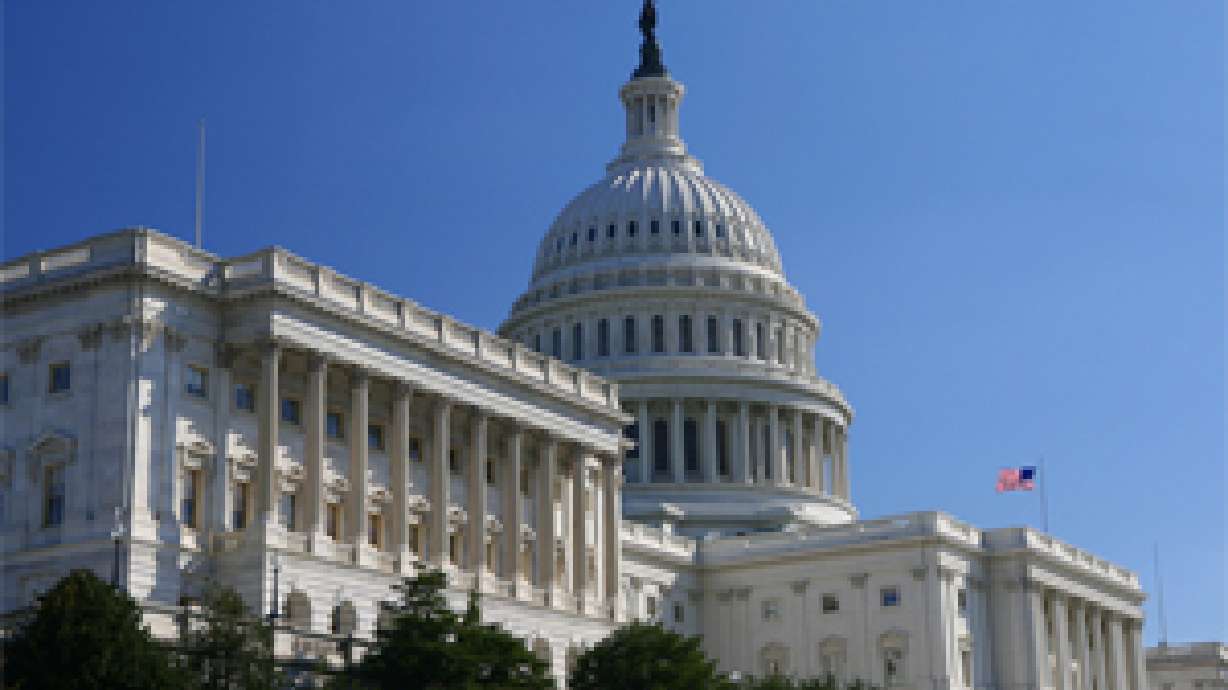Estimated read time: 2-3 minutes
This archived news story is available only for your personal, non-commercial use. Information in the story may be outdated or superseded by additional information. Reading or replaying the story in its archived form does not constitute a republication of the story.
SALT LAKE CITY (AP) -- Two retired senior military leaders in Utah have signed a petition calling for the end of the military's "don't ask, don't tell' policy.
The policy prohibits anyone who is gay from openly acknowledging it while serving in the military.
Brig. Gen. J.D. Johnson and Brig. Gen. Phil Peay signed their names to a letter being sent to Congress that asks for repeal of the policy. "I just believe it's the right thing to do," said Johnson, 60.
The policy was introduced in 1993 and approved by then-President Bill Clinton.
The letter Johnson and Peay signed is being sent to Congress to coincide with the approach of the policy's 14th anniversary. Both men said the directive punishes well-qualified people who shouldn't have to remain silent about their sexual orientation.
"You've got very fine people in the military right now who are being discriminated against because they openly said, 'I'm gay' or 'I'm a lesbian,"' Johnson said. "That's just not right."
Johnson and 27 other retired generals and admirals signed the letter, which says 65,000 gay and lesbian people are currently serving in the U.S. armed forces, with another 1 million gay veterans living in the United States. It's unclear how many service members have been dismissed because of the policy.
"It's really not been an issue, to my knowledge, for us in the Utah National Guard," said Guard spokesman Maj. Hank McIntire.
The same goes for the Army Reserve in a six-state area that includes Utah, Montana, Wyoming, North Dakota, South Dakota and Colorado.
"We have not ever had any court-martial action regarding the 'don't ask, don't tell' policy topics," said Claude McKinney, a Utah-based spokesman for the 96th Army Reserve Regional Readiness Command. "We've not had any action at all it just hasn't come up."
Peay, 62, of Mapleton, served 36 years in the military.
Peay said he could remember a few guys that he was "pretty sure" were gay and a female sergeant who was a lesbian. He remembered what he told her when she came to him, afraid about the fallout from an incident that involved her gender preference.
"I don't want to hear it," he told her. "I didn't need to hear it."
Johnson says the military is a leader in integration and a microcosm of society, one in which the public and private sectors prohibit employment discrimination against gays and lesbians.
Johnson said he chose to sign the letter to give voice to active-duty military members who feel they can't risk their jobs by speaking up.
------
Information from: Deseret Morning News
(Copyright 2007 by The Associated Press. All Rights Reserved.)









